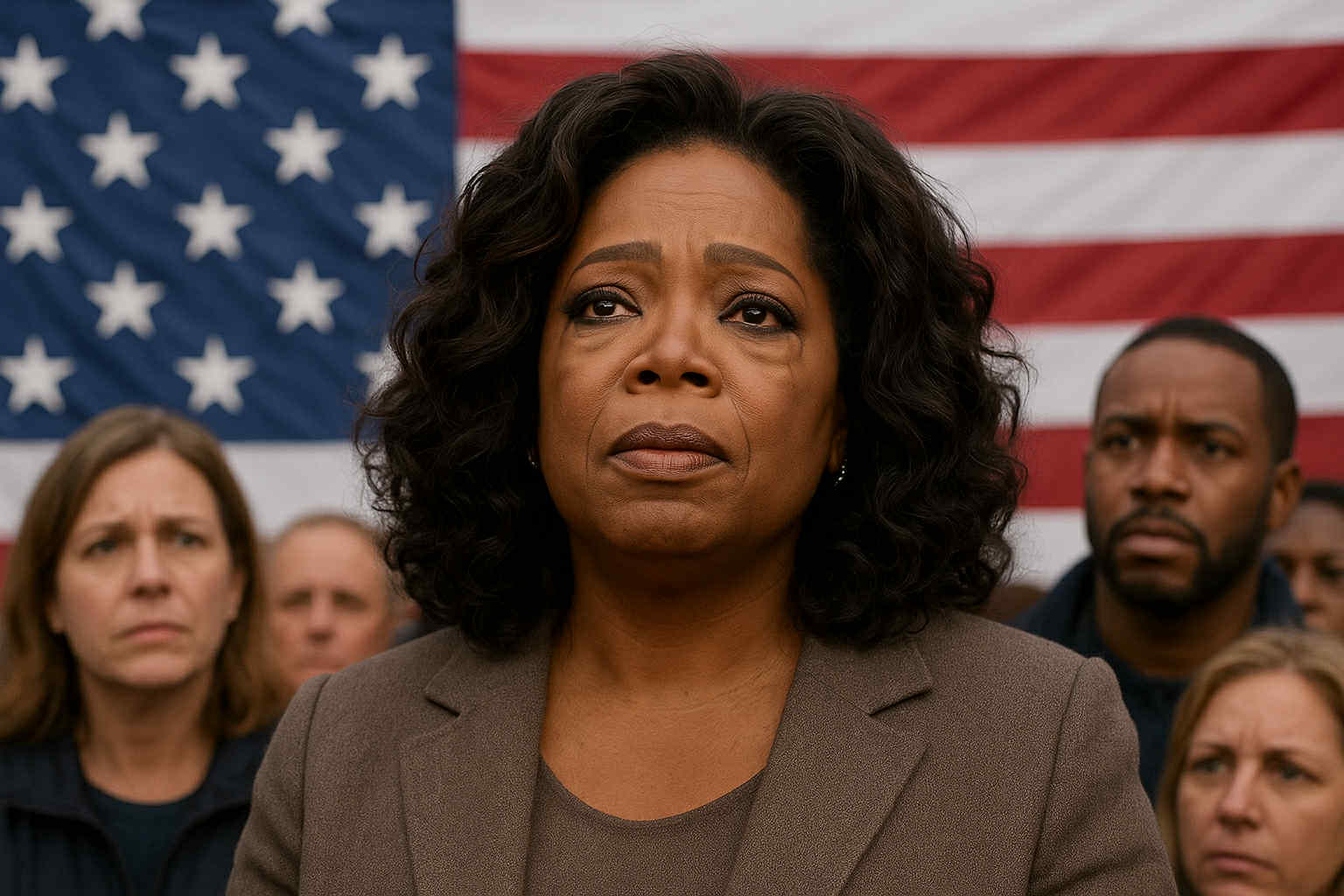For decades, Oprah Winfrey has been more than a television icon—she has been a cultural touchstone, a trusted voice, and a global figure of resilience and generosity. Her influence spans daytime television, film, literature, and philanthropy, so it’s no surprise that any hint of “sad news” about her immediately sparks concern. That is why recent viral posts claiming “heartbreaking” developments have spread rapidly across social media. The truth, however, is simple: there is no verified, credible report of any such tragedy.
The latest wave of misleading claims began circulating in early September 2025. Social media users encountered headlines and thumbnails reading “Sad News for Oprah Winfrey Fans” or “Breaking: Oprah’s Tragic Announcement.” Most of these posts used incomplete captions to bait curiosity, often paired with fabricated photos or memorial-style graphics implying illness or death. Clicking through usually led to low-credibility blogs, spam sites, or ad-heavy pages with no factual reporting.
Fact-checking organizations, including Lead Stories, quickly investigated and debunked these rumors. They confirmed that Oprah Winfrey remains active, publicly visible, and engaged in her work. Just this year, she has appeared at high-profile events, including charity galas and media features covered by outlets like People and Page Six. These appearances stand in stark contrast to the claims circulating online. The “sad news” headlines are simply recycled death-hoax tactics.
Why do such hoaxes persist? The psychology is straightforward. Content farms and bad-faith actors exploit audience trust, curiosity, and emotion to generate clicks and advertising revenue. Using phrases like “sad news,” “final moments,” or “last words,” they manipulate readers into engaging with falsehoods. The harm goes beyond wasted attention—it erodes trust in legitimate journalism and causes unnecessary distress for fans who have admired Oprah for decades.
Oprah has faced similar hoaxes before. Archives from Snopes and other fact-checking outlets show repeated cycles of fabricated claims over the years. Each time, the pattern is the same: vague headlines, manipulated images, and no confirmation from reliable newsrooms or official representatives. Even when disproven, these false stories resurface, targeting audiences who may have missed earlier corrections.
The responsible approach is vigilance. In today’s media environment, misinformation thrives when emotion overrides verification. A simple rule applies: if a story about a public figure is vague, sensational, and not reported by established outlets—whether national newspapers, respected broadcasters, or verified social accounts—it should be treated with skepticism. For Oprah, credible updates about her health, career, or personal life always come from her official channels or trusted media sources. Anything else deserves scrutiny.
There is also a deeper ethical point. Wisdom traditions remind us to guard our words and avoid spreading every rumor we hear. As Daily Positive notes, “Words are a trust.” Sharing unverified news—especially about death or illness—can cause real harm, grief, and alarm. To honor both truth and compassion, accuracy must come first.
Oprah’s career itself counters the noise of misinformation. Her message emphasizes authenticity, resilience, and integrity. Whether interviewing world leaders, highlighting everyday courage, or investing in education and community initiatives, she embodies the values that falsehoods undermine. Viral hoaxes reduce her to a sensational headline for profit, while her actual life work demonstrates the dignity and meaning that truth-telling can restore.
Fans encountering alarming posts should pause before reacting or sharing. Ask: is this reported by The New York Times, BBC, People, or Variety? Is there a statement from Oprah’s verified accounts or representatives? If not, it’s likely clickbait. Misinformation spreads quickly, while corrections rarely travel as far. Each person who resists sharing unverified news helps break the cycle.
The takeaway is clear: there is no “heartbreaking news” about Oprah Winfrey. She remains active, visible, and engaged, with public appearances and ongoing projects confirming her vitality. What should concern us is not Oprah’s supposed decline, but the persistence of rumors designed to mislead and exploit. Our responsibility is to practice discernment, honor the truth, and refuse to let sensational falsehoods diminish the legacy of a woman who has built her career on honesty, empathy, and empowerment.
Ultimately, the real story isn’t about Oprah—it’s about us. It’s about whether we allow misinformation to dictate our emotions, or whether we ground ourselves in verified facts. To honor Oprah’s example and protect our own integrity, the answer must always be the latter.
